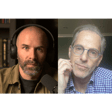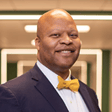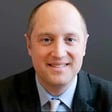
Episode 3 - An Interview with Laura Kusumoto, Principal of Iteration Zero
Laura Kusumoto is a proven executive leader, skilled in the disciplines of technology innovation. Her expertise is seeing beyond hype and harnessing the business value that emerging and disruptive technologies can bring to work. Applying experiences from working for Meta, Deloitte, Disney, Kaiser Permanente, LEGO and more, her passion is helping organizations identify the best problems to target with innovative solutions, and driving towards their successful piloting and implementation. Her work has paved the way for first-mover products such as AI chatbots in health care, immersive avatar-based training, VR for employee well-being, and beyond.
In 2023, Laura formed IterationZero LLC as a boutique consultancy offering innovation services that enable emerging technologies for the benefit of business and everyday work within the enterprise. Laura serves on the Board Executive Committee for the Virtual Worlds Society, and on the Advisory Board for XR Women.







